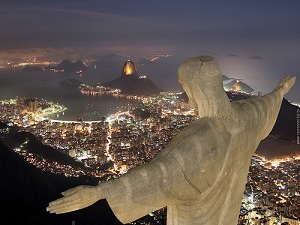
KNOXVILLE, TN (Catholic Online) – I cannot help but wonder at two opposing visions of women on Mother’s Day: the postmodern feminist vision and the Catholic vision. I will explore each of them in separate articles. In this article, I will look at postmodern feminism and explore its vision. The postmodern world we live in reminds me of two popular novels from the late 1800’s, Alice’s Adventures in Wonderland and its sequel, Through the Looking-Glass. In both novels, their author, Lewis Carroll, makes reason into a toy and turns reality on its head. Postmodernism does likewise. I see modern feminism, which is dominated by radical feminism, as the epitome of Postmodernism. It finds sustenance in the darkest corridors of the postmodern world. And from these dark places, it constructs a fantasy narrative used to justify its ugly war of hatred against men, marriage, family, and the harsh realities of economic life, all of which it battles via politics and control of the general population.
As you can tell, I have a very negative view of feminism. But it was not always so. When I was young, I was open to what feminists had to say. It was when I listened to them and watched them spread their tentacles throughout society, that I formed an opinion on feminism. Some of my early recollections included the following statements made by leading feminists: The feminist philosopher Sandra Harding, called Newton’s Principia Matematica a "rape manual." Luce Irigaray, a linguist and pseudo philosopher, claimed that E=mc² is a "sexed equation." Musicologist, Susan McClary, described the first movement from Beethoven’s Ninth Symphony as follows: ". . . the carefully prepared cadence is frustrated, damming up energy which finally explodes in the throttling murderous rage of a rapist incapable of attaining release."
I believe these statements represent the fantasy narrative which dominates feminism today. This narrative is largely based on five major postmodern categories. You may recall them: metaphysics which rejects truth and God; epistemology, which claims we cannot know; human nature, which emphasizes the malleability of people; ethics, which emphasizes groups in conflict with each other; and politics, which emphasizes egalitarianism, socialism and the acquisition of power.





